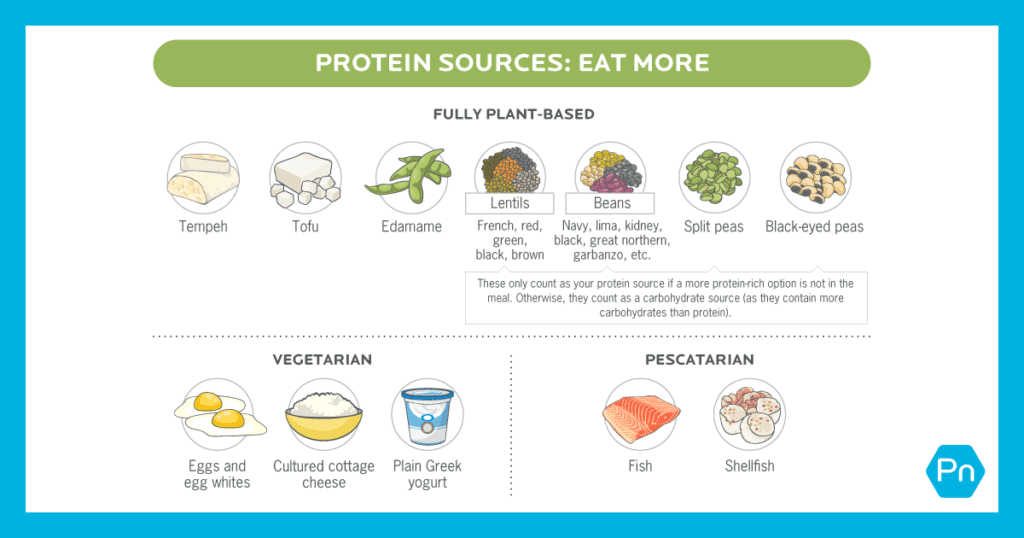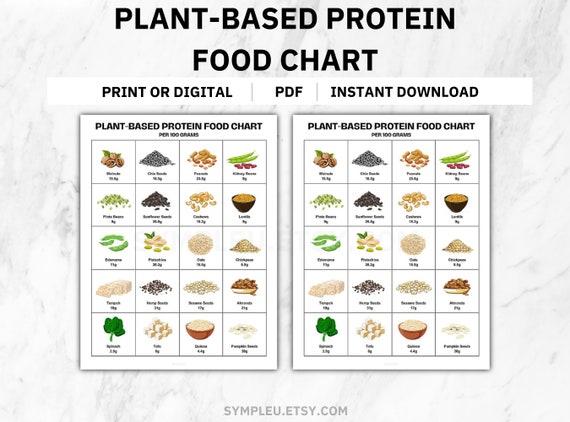By:
TrainCoreFit
01-18-2026

Discover the top plant-based protein sources that will supercharge your diet and leave you feeling stronger and more energized.
When it comes to maintaining a healthy diet, getting enough protein is essential. While many people associate protein with meat and dairy products, plant-based proteins can be just as beneficial and nutritious. In this guide, we will explore the various plant-based protein sources available to help you meet your daily protein needs.
Legumes are a great source of plant-based protein and are also rich in fiber, vitamins, and minerals. Options such as beans, lentils, chickpeas, and peas can easily be incorporated into soups, salads, stews, and stir-fries. Legumes are not only affordable but also versatile, making them an excellent choice for those following a plant-based diet.
Nuts and seeds are packed with protein, healthy fats, and essential nutrients. Almonds, walnuts, chia seeds, flaxseeds, and hemp seeds are just a few examples of nutrient-dense options. These can be enjoyed as a snack on their own, sprinkled on top of yogurt or salads, or blended into smoothies for an extra protein boost.
Whole grains like quinoa, brown rice, oats, and barley are not only a good source of carbohydrates but also contain a fair amount of protein. These grains can be used as a base for salads, soups, or as a side dish to accompany protein-rich meals. Incorporating whole grains into your diet can help increase your overall protein intake.

Image courtesy of www.precisionnutrition.com via Google Images
Soy products like tofu, tempeh, and edamame are high-quality sources of plant-based protein. Tofu can be grilled, sautéed, or blended into smoothies, while tempeh can be marinated and used in stir-fries or sandwiches. Edamame makes a great snack on its own or added to salads for an extra protein punch.
Seitan, also known as wheat gluten, is a popular meat substitute among plant-based eaters due to its meat-like texture and high protein content. It can be used in a variety of dishes, such as stir-fries, sandwiches, and stews. Seitan is a versatile ingredient that can add a substantial amount of protein to your meals.

Image courtesy of www.pinterest.com via Google Images
For those looking to supplement their protein intake, plant-based protein powders offer a convenient and easily digestible option. Pea protein, rice protein, hemp protein, and soy protein powders are common choices that can be added to smoothies, oatmeal, or baked goods. These powders are a great way to boost your protein intake post-workout or when on the go.
It’s important to note that plant-based proteins can be complementary, meaning that by combining different sources, you can create a complete amino acid profile similar to that of animal-based proteins. Pairing legumes with grains, nuts with seeds, or including a variety of plant-based protein sources in your meals can help you meet all your essential amino acid needs.

Image courtesy of www.etsy.com · In stock via Google Images
Adding plant-based protein sources to your diet can not only help you meet your daily protein requirements but also provide a host of other health benefits. Whether you follow a vegetarian, vegan, or omnivorous diet, incorporating a variety of plant-based proteins into your meals can contribute to overall well-being and balance in your diet.
Table of Contents